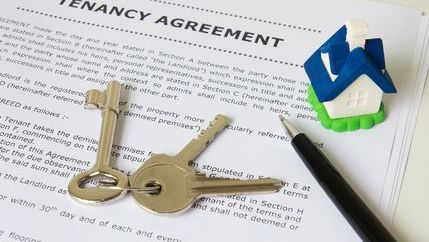
The timeline for change
The UK Government has so far refused to be drawn on the specific timetable for implementation. Parliamentary Under-Secretary for Housing, Baroness Taylor, has stated that the commencement date will be set through secondary legislation after the Bill has passed, and committed to giving the sector ‘sufficient time’ to prepare.
The Baroness also emphasised that clear, straightforward and easy-to-read guidance will be produced to help landlords and agents prepare, alongside a wide-ranging awareness campaign to educate the public on the reforms.
Supporting the sector
Propertymark is in continual dialogue with the Ministry of Housing, Communities and Local Government on members' behalf to ensure their interests are represented and that officials fully understand the unintended consequences the legislation will bring.
Letting agents should act now to understand how things will change for their landlords and tenants so they can support them through the process and demonstrate the value of working with a qualified, professional agent. Propertymark members can utilise our fact sheet and FAQs to help them understand the Bill and support their clients.
Fact sheet: Renters’ Rights Bill →
What changes will the Bill make?
The Renters’ Rights Bill (RRB) contains wide-ranging reforms designed to improve housing standards and tenant security in the Private Rented Sector (PRS). These include:
- A new standard periodic tenancy agreement
- The removal of Section 21 ‘no fault’ evictions
- Strengthened and adjusted grounds for possession under Section 8
- Application of the Decent Homes Standard to the PRS
- Reforms to property advertising and letting practices
- Restrictions on upfront rent payments
- Rules for fair rent increases
- A national landlord and agent database
- A new Ombudsman with mandatory membership
- Civil penalties and offences for non-compliance
Read the Guide to the Bill on Gov.UK →
The role of a professional letting agent
What can members be doing now to ensure they, their team, their business, and their clients are in the best position to adapt to the implementation of the Renters' Rights Bill?
Talk to your landlords
The RRB is likely to introduce higher costs and risks for landlords, which letting agents should prepare to manage. These include a potential increase in void periods (especially in HMOs and student lets), delays in gaining possession through court, constraints on rent collection—e.g., no advance payments before signing the tenancy, and new fees for joining the database and Ombudsman scheme.
It is also important that landlords are aware of the consequences of non-compliance. Civil penalties will be extended, and local councils will have a new duty to take enforcement action. First or minor non-compliance will incur a civil penalty of up to £7,000 with serious or repeat non-compliance, a civil penalty of up to £40,000. The most serious cases could face criminal prosecution and unlimited fines.
Audit your portfolio
Carry out property inspections and resolve any health or safety issues. Identify properties that may need improvements to meet the new Decent Homes Standard (DHS).
The specification for the private sector DHS hasn’t been finalised, but in the social sector, properties must:
- Be in a reasonable state of repair, both internally and externally.
- Have reasonably modern facilities and services. A benchmark is for kitchens to be under 20 years old and bathrooms under 30 years old.
- Provide a reasonable degree of thermal comfort, with an efficient heating system and proper insulation.
- Be free of Category 1 hazards under the Housing Health and Safety Rating System (HHSRS). This includes issues such as the spread of mould, excessive heat or cold, major structural issues that could cause injury, and potential carbon monoxide leaks.
Update your processes and train your team
Prepare for changes in advertising, referencing, and how you log and resolve tenant issues, and make sure all staff have access to training and reliable sources of information.
Review existing insurance products and fee structures to ensure they remain valid under the new rules. If you outsource to a letting or managing agent, ensure they are starting to prepare too.
Training support from Propertymark
Our virtual course offers an exclusive opportunity to learn from renowned industry experts who will take you through areas where the Renters’ Rights Bill will affect landlords and agents. Attendees will gain tips, insights and advice on how to prepare for the new regime.






